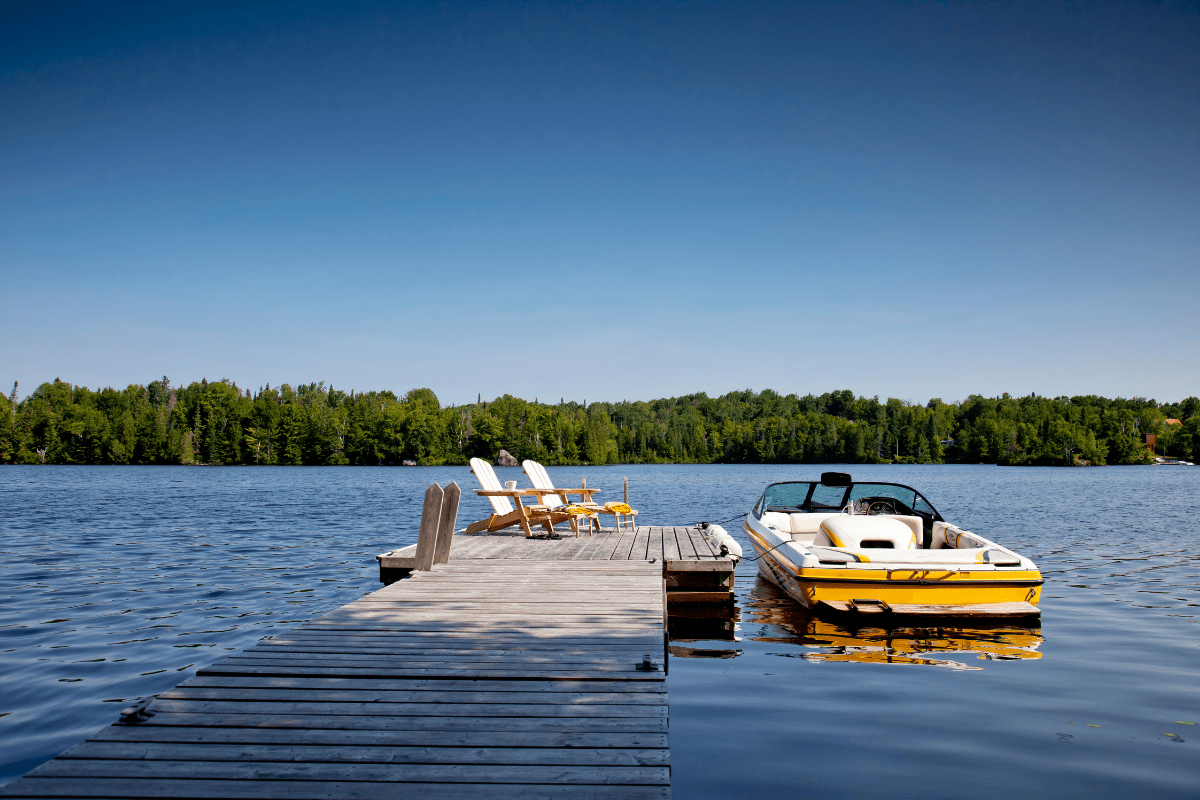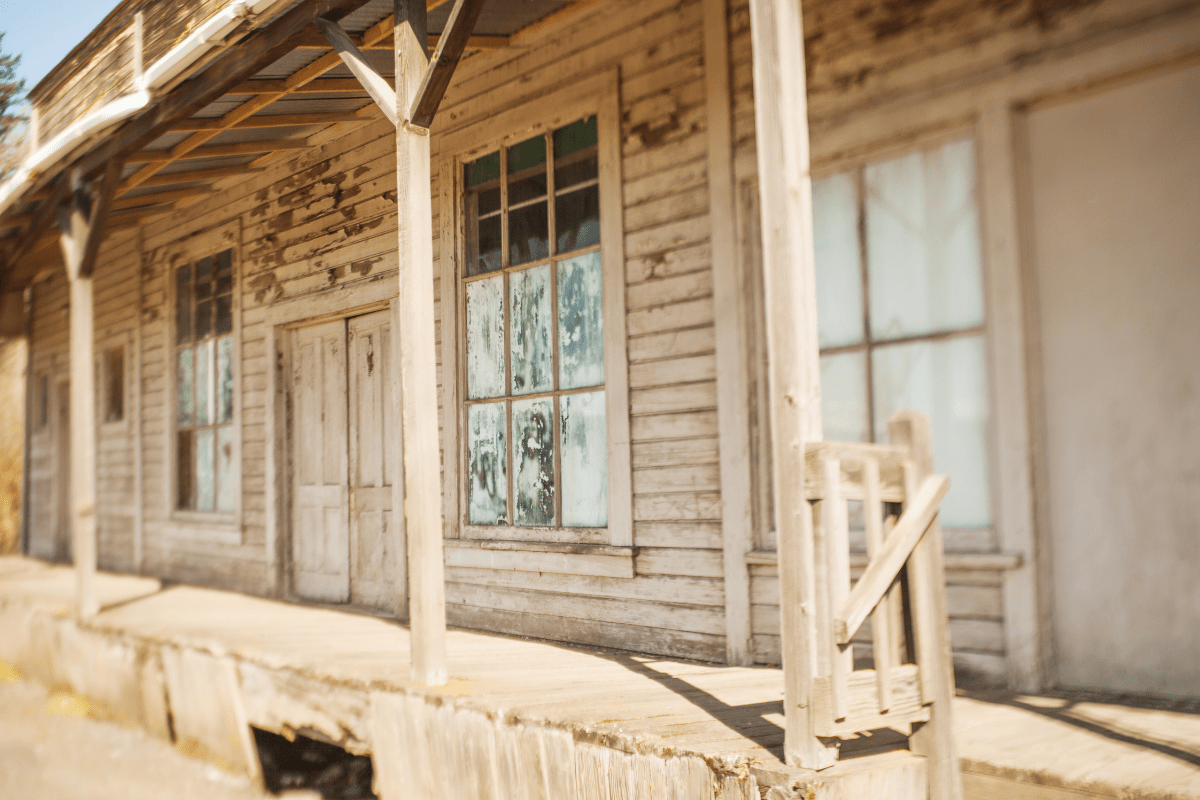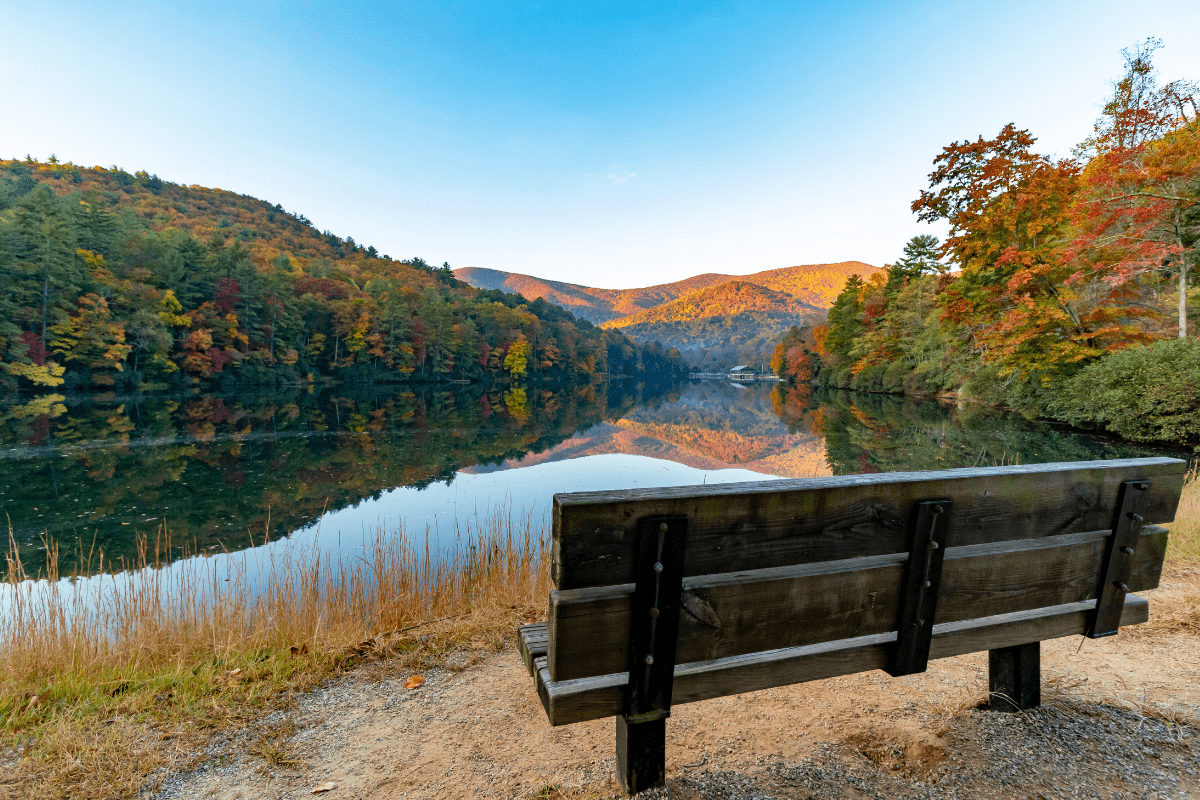Georgia's lakes are basically the state's way of saying "hey, we're not just about peaches and traffic." With over 100 major bodies of water scattered from the mountains to the coast, you've got options whether you're chasing trophy bass, teaching kids to fish, or just need somewhere to float and forget about your inbox.
Why Georgia's lakes deserve your weekend
Let's start with the heavyweight champion: Lake Lanier pulls in 7.6 million visitors annually and generates a whopping $5 billion in economic impact. That's billion with a B, folks. But here's the thing… Georgia's lake scene goes way deeper than just Lanier's party coves and floating restaurants.
The state's diverse geography means you can fish for trout in crystal-clear mountain water in the morning and catch catfish in a cypress-lined swamp by evening. Well, if you drive really fast and ignore speed limits, which I'm definitely not suggesting.
From the 38,000-acre Lanier to tiny electric-motor-only hideaways, each lake has its own personality. Some are all about luxury resorts and golf courses designed by people whose names you recognize from TV. Others are so peaceful you'll wonder if you accidentally discovered a secret government relaxation facility.
North Georgia mountain lakes: Where the water's actually cold
Mountain lakes are Georgia's answer to people who complain about the heat, offering cooler temperatures and views that'll make your Instagram followers think you traveled somewhere exotic.
Lake Burton leads the trophy fish parade
At 2,775 acres, Lake Burton holds some seriously impressive records, including an 11-pound walleye and a 2.5-pound yellow perch (tied just this past February 2024). Created back in 1920 for power generation, this lake goes deeper than your cousin's conspiracy theories… over 100 feet in some spots.
Moccasin Creek State Park brings the amenities with 48 lakefront campsites and an ADA-accessible fishing pier. The adjacent fish hatchery offers tours where you can learn about Georgia DNR's brown trout stocking program, designed to control invasive blueback herring. Because apparently, even fish need population management.
Lake Blue Ridge: Georgia's unexpected bass paradise
Here's something cool: Lake Blue Ridge is Georgia's only smallmouth bass lake. With 80% of its 65-mile shoreline still undeveloped within the Chattahoochee National Forest, it's basically nature's way of saying "not everything needs a Starbucks."
The 3,290-acre reservoir recently got interesting with Georgia DNR starting an experimental rainbow trout stocking program. They're planning to dump… er, carefully introduce… 10,000 to 15,000 trout annually through 2027. The marina charges $15 for boat launches during peak season, but you can still access the lake for free at Dry Branch if you're feeling frugal.
Morganton Point Recreation Area offers camping from $24 to $48 per night, complete with a pebbled swimming beach where water shoes are basically mandatory unless you enjoy hopping around like you're walking on hot coals.
Lake Chatuge and the coming water apocalypse (sort of)
Straddling the Georgia-North Carolina border at 1,779 feet elevation, Lake Chatuge spans 7,000 acres with 132 miles of shoreline. Towns County Beach offers free parking and actual white sand, which is pretty sweet considering most Georgia beaches are more "brownish sand with occasional mysterious objects."
Here's your heads-up for planning ahead: TVA announced they're dropping water levels an additional 10 feet below winter pool starting late 2027 for dam maintenance. It's a two-year project, so maybe plan your Chatuge trips accordingly. Or invest in really tall dock ladders.
Lake Nottely: Where stripers grow supersized
Lake Nottely is crushing it in the trophy striped bass department. Someone caught a 46-pounder in April 2024, which is roughly the weight of a kindergartener. Local guide Jeremy Seabolt reports excellent summer success using downline techniques, which sounds fancy but basically means "put your bait where the fish are."
Metro Atlanta's accessible giants
These lakes balance recreation with the slightly less exciting job of keeping millions of people hydrated. But hey, multitasking is admirable.
Lake Lanier: The good, the complicated, and the waterslides
Lake Lanier is massive: 38,000 acres, 692 miles of shoreline, 76 recreational areas, and 11 full-service marinas including Holiday Marina with its 1,300 slips. The lake provides drinking water for 4 million people, which explains why they get touchy about people doing certain things in it.
The 2024 opening of Fins Up Water Park at Margaritaville added "Apocalypso," Georgia's first waterslide coaster with a 418-foot track. Though ironically, they restricted lake swimming access for safety, because apparently natural water is more dangerous than hurling down a plastic tube at high speed.
The lake has a complex history worth acknowledging. It flooded the site of Oscarville, a prosperous Black farming community destroyed in 1912 racial violence that displaced over 1,000 residents from Forsyth County. History matters, even at the lake.
On the practical side, boat launch fees vary by location, and marina slips run $260 to $275 monthly. The Lake Lanier Striped Bass Club holds monthly tournaments, with prime fishing north of Browns Bridge when water temps hit that magic 60°F mark.
Lake Allatoona: The overachiever
Despite recording 92 million visitor hours in 2006 (more than any Corps of Engineers project nationwide), Allatoona somehow feels less crowded than Lanier. Maybe it's the 12,000 acres of space, or maybe everyone's just really good at spreading out.
Red Top Mountain State Park sits on a scenic peninsula, and there are eight privately operated marinas. The Allatoona Yacht Club, established in 1952, takes advantage of consistent winds that make sailors happy and everyone else reach for their hats.
Central Georgia: Where golf meets bass fishing
Central Georgia lakes figured out that people with money like both fishing and golf, so they combined them. Smart move.
Lake Oconee: Georgia's luxury playground
As Georgia's second-largest lake at 19,000 acres with 374 miles of shoreline, Lake Oconee doesn't mess around. Reynolds Lake Oconee features seven championship golf courses designed by legends like Tom Fazio and Jack Nicklaus. Initiation fees range from $10,000 to $60,000, which is either "reasonable" or "insane" depending on your tax bracket.
The Ritz-Carlton Reynolds holds the distinction of being the only lakefront Ritz-Carlton in the United States, presumably because other Ritz-Carltons are too fancy for lake water. But don't worry, regular folks can still access the lake through Georgia Power boat ramps for just $5 daily parking.
Captain Wayne Moore of Oconee On The Fly notes optimal pre-spawn fishing from February through March, with crappie commonly reaching 1 to 1.5 pounds. The lake's pump-storage connection with Lake Sinclair creates noticeable current during power generation, which affects fishing patterns and occasionally confuses tourists who think the lake is broken.
The modest lakes that could
Lake Sinclair spans 15,330 acres and offers tournament fishing opportunities, with Dennis Station DNR boat ramp featuring fish attractor lights for night fishing. Because fish apparently need mood lighting too.
Lake Juliette keeps things chill with its 25-horsepower motor restriction. The 3,600-acre lake features standing timber from when they flooded it 30 years ago, creating excellent bass habitat with minimal fishing pressure. The warm water discharge from Robert W. Scherer Power Plant creates unique year-round fishing conditions, though there are consumption advisories. Don't worry, Georgia EPD says it's within guidelines, which is reassuring in that "trust us, it's probably fine" kind of way.
High Falls Lake earned recognition as one of the nation's top family fishing destinations, which sounds like something a chamber of commerce made up but is actually true. Someone caught a 60-pound flathead catfish here, which is basically a swimming golden retriever. The 650-acre lake limits motors to 10 horsepower, and High Falls State Park offers camping, a swimming pool, and miniature golf for when you get tired of catching fish.
South Georgia: Where winter barely exists
South Georgia lakes stay warm enough that fish think it's spring when North Georgia fish are still wearing their winter sweaters. Or whatever fish wear in winter.
Lake Seminole: Bass fishing's spiritual home
At 37,500 acres where the Chattahoochee and Flint Rivers converge, Lake Seminole features 70% hydrilla coverage creating exceptional bass habitat. Jack Wingate, the "Sage of Seminole" who passed in 2011, helped launch professional bass fishing from his Wingate's Lunker Lodge, now operated by Dale Wilson and Gale Goodman.
Early prespawn activity begins in January because South Georgia doesn't believe in winter. Spring Creek and Fish Pond Drain offer prime grass bed locations for frog fishing and topwater techniques, which is fishing speak for "throw stuff that looks like food and hope for the best."
More South Georgia greatness
Walter F. George Lake extends 85 miles along the Georgia-Alabama border as the 46,000-acre "Bass Fishing Capital of the World," a title that presumably involved some sort of bass committee vote. George T. Bagby State Park provides a 60-room lodge with an award-winning 18-hole golf course, plus they issue 500+ hunting permits annually for surrounding areas.
Lake Blackshear spreads across 8,500 acres with extensive cypress tree stands that look like something from a fantasy movie. Georgia Veterans State Park showcases a military museum including a B-29A Superfortress and offers rides on the SAM Shortline Excursion Train to Plains, combining lake life with unexpected historical adventures.
Hidden gems for the adventurous
Sometimes you want to fish without fourteen boats playing different music genres at maximum volume.
Lake Varner in Newton County prohibits gas motors on its 850 acres, creating the kind of tranquility that makes you realize your phone has an "off" button. The drinking water reservoir offers free access for Newton and Walton County residents, while others pay $300 annually. Fish reportedly taste better due to the pristine water quality, though that might just be the power of suggestion.
Lake Russell's 26,650 acres remain undeveloped due to federal regulations prohibiting private shoreline construction. Completed in 1983, the lake maintains stable levels with only 5-foot fluctuation. Thousands of acres of standing timber provide exceptional bass habitat, and Georgia DNR stocks 30,000 trout annually in the tailrace area.
Paradise Lake Public Fishing Area encompasses 68 individual lakes totaling 525 acres. Gas motors are prohibited except on the three largest lakes at idle speed only. Primitive camping costs $10 nightly, and winter months transform the area into a ghost town offering excellent fishing without crowds.
When to visit Georgia's lakes
Understanding seasonal patterns can mean the difference between catching dinner and catching a sunburn:
Spring spawning windows:
- North Georgia: March through May
- South Georgia: January through March
Summer considerations:
- Thermoclines affect deep patterns
- Surface temps reach 80-85°F
- Perfect for swimming and water sports
- Crowds peak, patience required
Fall advantages:
- Exceptional spotted bass fishing
- Reduced crowds
- Comfortable temperatures
Winter opportunities:
- Trophy fish potential
- Fish concentrate predictably
- South Georgia stays fishable
The practical stuff nobody tells you
Georgia fishing licenses are required for anglers 16 and older, available online through DNR or at retailers. Most Corps of Engineers areas charge $5 daily parking or offer annual passes. State parks typically require $5 per vehicle. Boat launch fees range from free at some locations to $15 at premium marinas during peak season.
Accommodation options for every budget exist:
- Primitive camping: $10-26 nightly
- RV sites: $30-50 with hookups
- State park cabins: $125-200
- Lakefront rentals: $200-500+ per night
- Luxury resorts: Sky's the limit
Safety notes from someone who learned the hard way
All lakes managed by the Corps enforce specific safety regulations. Lake Lanier's reputation for accidents isn't entirely undeserved, so extra vigilance during busy summer weekends isn't paranoid, it's smart.
South Georgia lakes have alligators. Yes, real ones. Lake Seminole especially. They generally leave you alone if you leave them alone, but maybe don't bring your toy poodle for a swim at dusk.
Swimming advisories occasionally appear during algae blooms. Mercury restrictions limit consumption of certain fish species from specific lakes. Lake Juliette carries consumption advisories due to power plant operations, though Georgia EPD confirms fish remain safe within guidelines. When in doubt, catch and release makes everyone happy.
Life jackets aren't just for kids. Most swimming areas lack lifeguards, and even strong swimmers can get into trouble. Navigation through hydrilla-choked waters demands local knowledge or GPS-equipped depth finders unless you enjoy the surprise of suddenly stopping.
Your Georgia lake adventure awaits
Georgia's lakes deliver remarkable diversity from mountain trout streams to cypress-lined bass factories. Each offers distinct character shaped by geography, management philosophy, and local culture. Whether you're casting for trophy stripers at Nottely, pretending you can afford Reynolds Lake Oconee, or paddling peacefully through Lake Varner's electric-only waters, success comes from matching destinations to desires.
The best lake is the one you actually visit. So grab your fishing license, pack some sunscreen, and remember: any day on the water beats a day staring at spreadsheets. Even if you don't catch anything, you'll at least have a good story about the one that got away.





